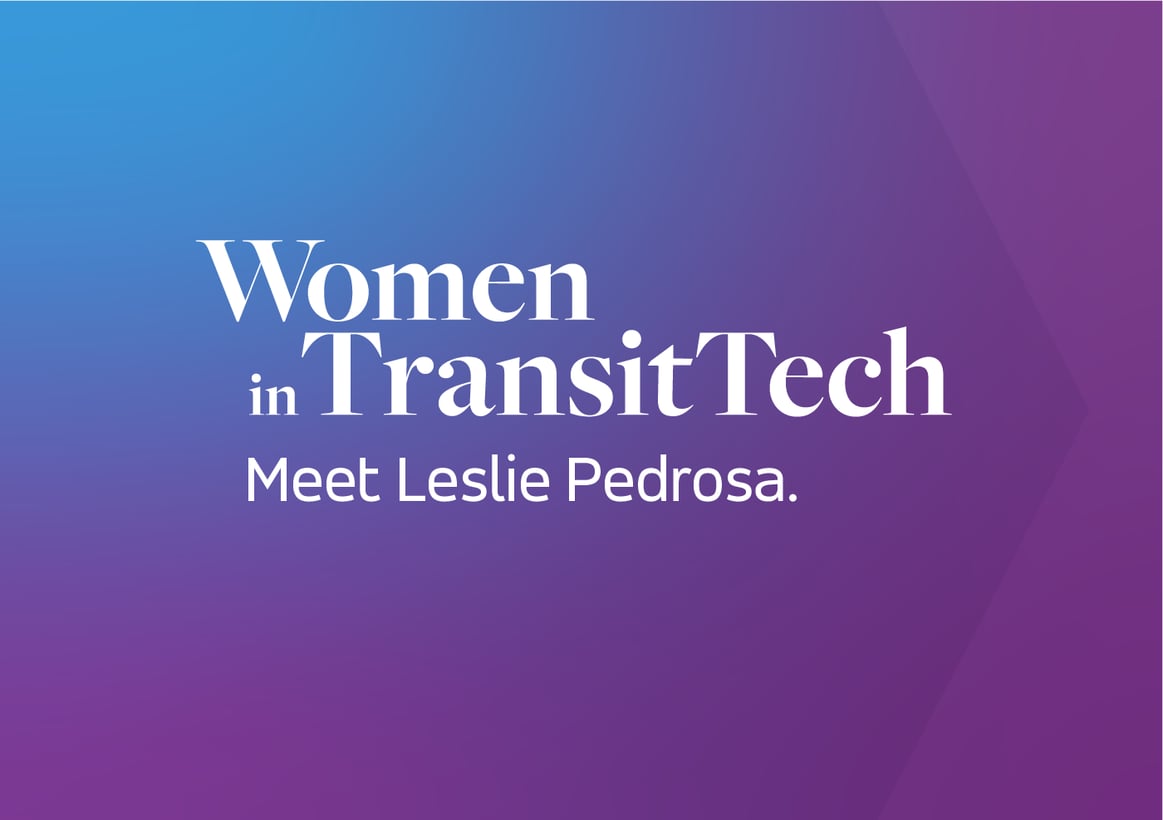Challenging the status quo takes diligence, determination, and vision — especially when it comes to an industry that hasn’t seen a seismic shift since the automobile was invented. And, as it turns out, it’s often women who choose to challenge these norms. In honor of International Women’s Day and throughout the month of March, Via is proud to profile a number of changemakers driving real innovation in their communities and inspiring their peers. Enjoy the story below, and then check out the rest of the series here.
Leslie Pedrosa has been in the public transportation industry for 25 years and currently serves as the Operations Director of Valley Regional Transit in Boise, Idaho. In her role, she oversees, supports, and ensures public safety and regulatory compliance pertaining to all aspects of service delivery. Leslie also oversees contracts with all service providers and the administrative functions of customer service and Intelligent Transportation Systems.
What did 10-year-old Leslie want to be when she grew up? How did you evolve from there to your current position in transportation? I grew up in transit. My mom started driving a city bus when I was a kid and is still in the business today after almost 40 years. I always wanted to be a pharmacist as a kid but growing up where I did shifted my interest to criminal justice. While going to college and taking courses that revolved around being a correctional officer for juveniles, I started driving a dial-a-ride bus, because they were able to work around my school schedule.
What do you think are the most important qualities in a leader? Are there any leaders in particular you look up to? Being humble, honest, consistent and fair. I look up to my mom and a core group of women that she started in the business with — all of whom remained in transit until they retired.
What are the big transit challenges in your community that your team is solving with innovative mobility projects? We used to operate a fixed route bus service that was consistently declining in performance. Funding partners were losing interest in supporting the service, so we implemented an on-demand transit solution. We also have a lot of residential areas that have no transit service, so we started a Lyft partnership to serve first-and-last mile connections to our fixed routes.
In your view, what’s the biggest challenge the transportation industry as a whole will have to tackle in the next 2-5 years? Transit technology is constantly changing. The challenge is keeping up with it, while still being able to successfully run service. The other challenge occurs when transitioning to a new vendor and grappling with how those changes affect the rider.
Tell us about a defining moment in your professional life that has helped guide you on your path. I was very young when I started in transit and one of the things I was told was that if I was going to expect someone to do something, I had to know how to do it as well. I have taken that with me my entire career.
And finally, what drives you? (Pun intended!) Knowing that what I do is helping someone else.

.png?width=71&height=47&name=Sioux%20Falls%20Webinar%20(6).png)


